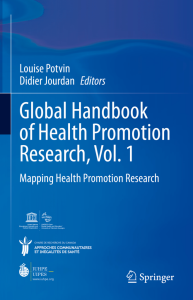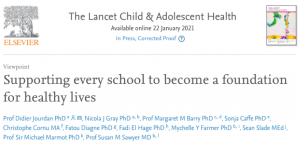The Global platform to monitor school health aims to support countries to obtain standardized metrics to monitor their school health programmes. Aligned with the Global Standards for Health Promoting Schools, the platform was developed by WHO, UNESCO, UNICEF and the WFP to help countries:
- Generate standardized data to inform priorities for school health;
- Inform actions for improvements by linking results with recommendations;
- Establish trends in school health policies and practices;
- Facilitate dialogue between countries, international agencies, and others by exchanging information on school health policies and practices.
National school health coordinators, UN staff and development partners are invited to join.
Registration
For the ENGLISH version 13:00-14:00 CET March 27th 2024 https://who.zoom.us/webinar/register/WN_sOgEGY32T9yGrINip_kO1Q
For the FRENCH version 13:00-14:00 CET April 3d 2024 https://who.zoom.us/webinar/register/WN_XxO_QwVRS2CQIgM6fTAzkQ
More information
Flyer webinar Global Platform School Health in English
Flyer webinar Global Platform School Health in French
Visit the web page to learn more about the WHATs, WHYs and HOWs of the platform














 About Didier Jourdan
About Didier Jourdan
